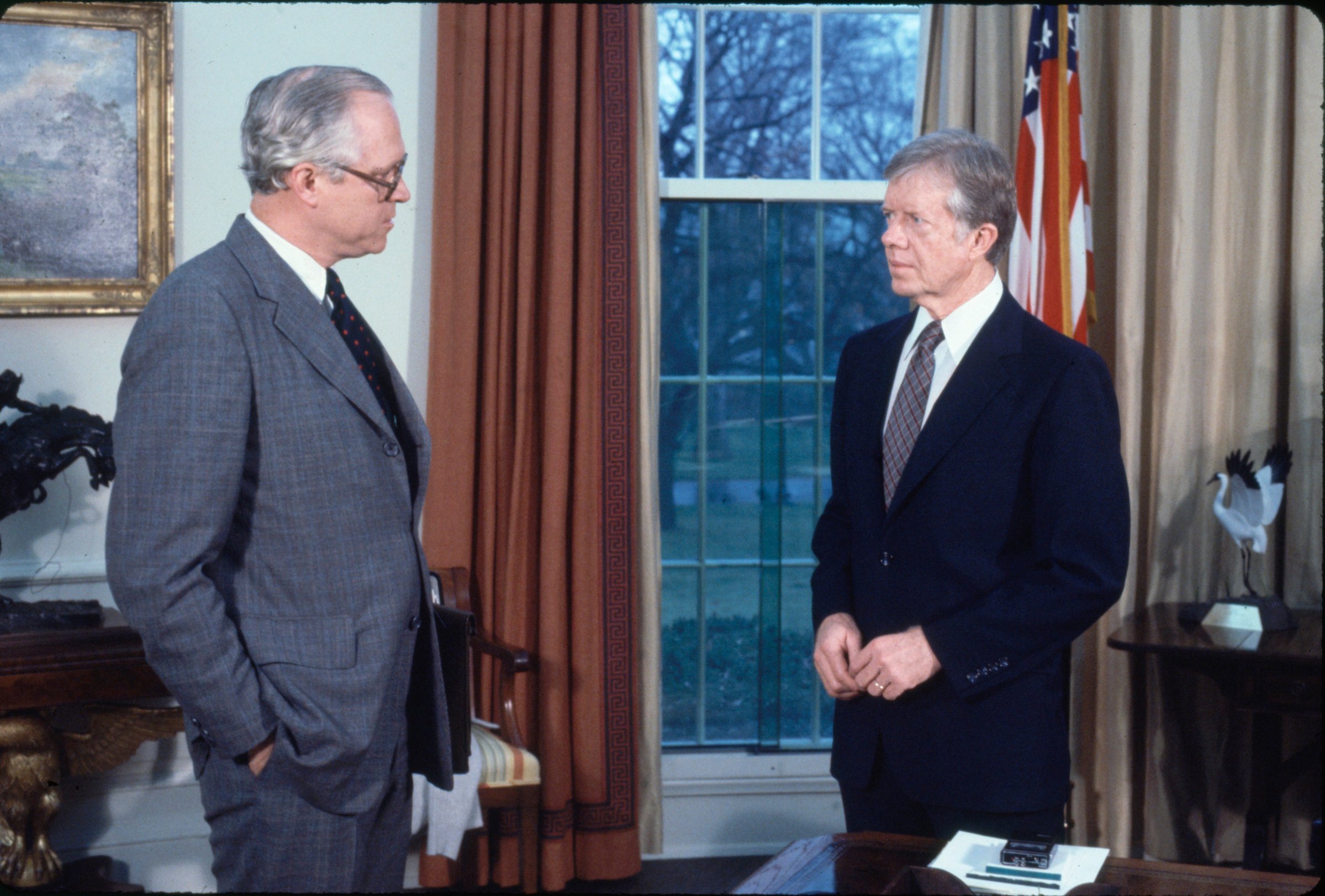
Congressional authority to set the federal budget—the “power of the purse” as it is known—is a pillar of the American form of government. For the first 200 years or so of American history, it was also sort of ignored.
Until 1980, there was no such thing as a “government shutdown.” When presidents didn’t have cash, they spent on credit. If Congress failed to pass a budget on time, federal agencies just carried on with work until their appropriated funding was authorized retroactively. But at the end of the Carter Administration one man changed all that with the stroke of a pen.
His name: Benjamin Civiletti.
As Jimmy Carter’s attorney general, Civiletti was asked for a legal opinion parsing out what exactly the federal bureaucracy is supposed to do when Congress doesn’t pass a budget by deadline. Congress had missed the mark many times before but the issue was becoming particularly urgent; in the four fiscal years from 1977 to 1980—every year of the Carter presidency to that point—Congress had failed to pass a budget on time. Remarkably, Civiletti determined that Carter’s request for a legal opinion on the matter “apparently represents the first instance in which this Department has been asked formally the address the problem as a matter of law.”
Civiletti based his opinion in the Antideficiency Act of 1870, enacted by Congress to stop the then-routine practice of agencies intentionally overspending, secure in the knowledge that Congress would eventually have to pick up the tab. Writes Civiletti, “On its face, the plain and unambiguous language of the Antideficiency Act prohibits an agency from incurring pay obligations once its authority to expend appropriations lapses.”
Civiletti took a surgeon’s precision—he’d once thought he might become a doctor—to a question that statesmen had left vague and squishy for centuries. The “legal authority for continued operations either exists or it does not,” he writes. And to those who argue that federal agency operations ought to carry on even without appropriated funds because Congress doesn’t mean for the government to shutdown, he responded thusly: “Faithful execution of the laws cannot rest on mere speculation that Congress does not want the Executive branch to carry out Congress’ unambiguous mandates.”
Civiletti introduced key shutdown concepts into the lexicon. He wrote that the only legitimate use for funds once a budget deadline has passed is to facilitate an “orderly termination”—the reason federal employees get to go into work for a few hours to batten down the proverbial hatches on the first day of a shutdown. In a second legal opinion on the matter, Civiletti carved out exemptions to his austere, “either exists or it does not” rule. The Executive, he writes, has the constitutional “leeway to perform essential functions and make the government ‘workable’”—this is reason “essential” air traffic controllers still go to work while most of “nonessential” NASA stays home.
Civiletti, who is 78 years old and lives in Florida, declined requests for comment, but to this day his opinion about Congress’ unambiguous mandate speaks for itself.
More Must-Reads from TIME
- Donald Trump Is TIME's 2024 Person of the Year
- Why We Chose Trump as Person of the Year
- Is Intermittent Fasting Good or Bad for You?
- The 100 Must-Read Books of 2024
- The 20 Best Christmas TV Episodes
- Column: If Optimism Feels Ridiculous Now, Try Hope
- The Future of Climate Action Is Trade Policy
- Merle Bombardieri Is Helping People Make the Baby Decision
Contact us at letters@time.com